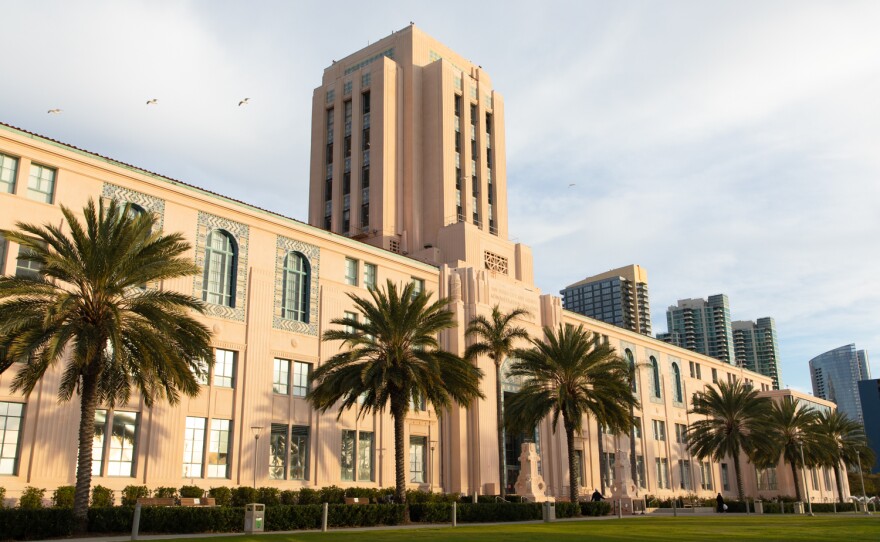The San Diego County Board of Supervisors voted 3-1 Wednesday to continue holding teleconferenced public meetings due to the coronavirus pandemic.
According to Board Chairman Nathan Fletcher's office, Wednesday's action was tied to the ongoing state of emergency, which was first declared over two years ago.
The decision comes as highly infectious BA.4 and BA.5 subvariants are driving up case and hospitalization numbers, moving San Diego County into the "high" COVID-19 activity level.
Supervisors met via teleconference Wednesday, but have recently held in-person meetings. Fletcher, along with Supervisors Terra Lawson-Remer and Nora Vargas, voted in favor of teleconferenced public meetings, while their colleague Joel Anderson was opposed. Supervisor Jim Desmond was absent.
In a statement released after the meeting, Anderson said he believes that "as elected officials, we have a responsibility to the people we represent to be present and engaged in our board proceedings. That's why I've consistently voted to return Board of Supervisors meetings to in-person, so as to give the public an opportunity to be involved and speak with us face-to- face."
According to Wednesday's agenda, supervisors will need to review teleconferencing policy at least every 30 days if they wish to continue it.
In February 2020, Dr. Wilma Wooten, county public health officer, declared a local health emergency. The next month, Gov. Gavin Newsom issued an executive order allowing local governing bodies to hold meetings via teleconferencing, but required that meetings be "accessible telephonically or otherwise electronically to all members of the public."
During a brief public comment session, most who called in — many of whom have frequently criticized county COVID-19 policies at previous meetings — were opposed to the teleconferencing proposal.
They cited First Amendment concerns or called out supervisors for inconsistent actions during the previous teleconferenced meetings. One, who identified herself as "Oliver Twist," mentioned that three supervisors participated in last weekend's San Diego Pride Parade, which had thousands of attendees.
"I'm wondering if you even see the glaring incongruity and questionable optics of attending a mass gathering of such epic scale," she said.
The woman questioned why the board approved a lobbyist to represent county interests in Washington, D.C., but felt that it was OK to conduct the people's business remotely. She also suggested that if they're going to attend meetings via teleconference, supervisors should be seen in real time on video screens inside the board's chamber.
County resident Kevin Stevenson supported the board's action and said COVID-19 cases have been on the rise, with the BA-5 variant being more contagious than others and according to recent news reports, may be more vaccine-resistant.
"It's stupid for anyone to be against teleconferencing for any reason right now," Stevenson said. A deadly pandemic aside, teleconferencing actually increases participation in government meetings, especially considering the county's size, he added.
"It doesn't make any logical sense for people from Valley Center or Fallbrook to come in person to a meeting in downtown San Diego," he said.
Stevenson noted that those wanting to end teleconferencing "want to silence" low-income people or those with less free time on their hands.
Supervisors will hold their next regular meeting at 9 a.m. on Aug. 16.
A total of 447 people are hospitalized with a coronavirus in the county, according to the latest state data released Wednesday. The number of those patients being treated in intensive care was 46.
As of Thursday, the average daily rate of COVID-19-positive patients being hospitalized in the county rose to 11.5 per 100,000 residents. That topped the U.S. Centers for Disease Control and Prevention's threshold for "high" virus activity.






